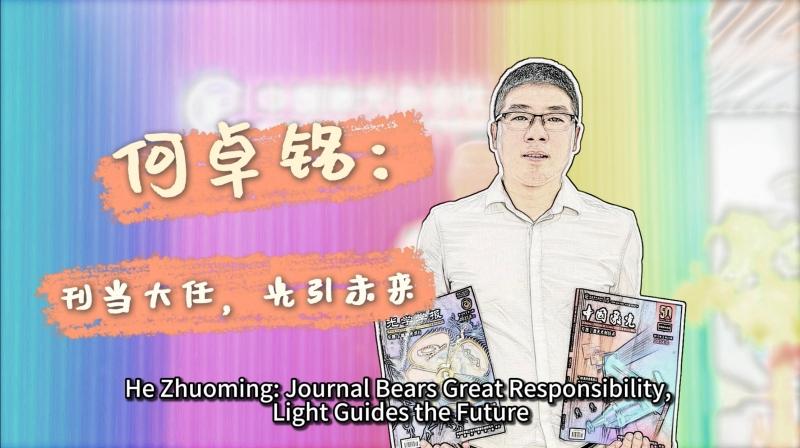Empower the Public with Science

Dr. Oluwarotimi Williams Samuel. (COURTESY PHOTO)
By?LONG?Yun?&?BI?Weizi
Dr. Oluwarotimi Williams Samuel is an associate professor at the Center for Neural Engineering at the Shenzhen Institutes of Advanced Technology (SIAT), Chinese Academy of Sciences (CAS).
The Nigerian scientist's research is focused on developing simple yet efficient AI-based data-driven solutions for real-life problems in the field of cyber-physical systems, including rehabilitation robotics and related intelligent systems.
Providing optimal care for patients
After investigating a number of confounding issues limiting the clinical and commercial success of intelligent upper limb rehabilitation robots, Samuel has developed computationally efficient AI-driven solutions to address these issues. His work in this area is critical, as it helps ensure optimal care provided for patients who need it.
Additionally, Samuel has developed AI-driven clinical decision support systems that enable efficient analysis of vast amounts of medical data. These systems minimize human error and facilitate healthcare teams' decision-making in terms of disease prediction, diagnosis, and treatment options. The importance of such systems in healthcare cannot be overstated, as they play a crucial role in ensuring that the correct diagnosis is made, and the proper treatment is provided.
Samuel's research work is commendable, as he is designing AI-driven tools that work well with different levels of data quality and are user-friendly, which is essential in realizing the full benefits of the technology.
Bringing science to the public in simple terms
His contributions to the scientific community are not limited to academic research. In a recent interview with Science and Technology Daily, Samuel said that science outreach work bridges the gap between the scientific community and the general public.
He emphasized the need for scientists to explain their work in more straightforward terms that are easily understandable to ordinary people. He suggests that scientists should have an aspect of their work that demonstrates their research findings to the public in a more accessible way. This is particularly important for those who will use the technologies that come out of scientific research.
In his view, making scientific research findings more accessible to the public not only helps the public gain more confidence in technology but also empowers them to understand how to use these technologies. He is adamant that technology users should have a clearer understanding of what technology entails, what it will cost to deploy it, and how it compares to other existing technologies.
Diversity sparks better ideas
Samuel had always been interested in studying abroad and experiencing education in different parts of the world.
In 2014, he joined SIAT via a fully funded PhD sponsorship of the CAS-TWAS President's Fellowship Award. His experience at SIAT has allowed him to scale up his academic research capability and expertise.
When asked about his views on China, Samuel describes it as a very progressive country with a lot of opportunities. He lauded the government's efforts in providing support and funding for underdeveloped countries and regions.
From his point of view, international cooperation is essential with its power to provide different perspectives to a single problem, resulting in better solutions for society. He believes that the essence of science is to address problems and make society better for all.
Samuel emphasizes that cultural backgrounds and environments can affect people's perspectives, but international cooperation can provide more clarification and understanding. By communicating with people from different cultures, one can gain a global perspective and get the information delivered to the public in a much more precise way, build better cities, and promote scientific progress.
He said that different parties should join hands to unlock and maximize the value of international cooperation. As a critical player in boosting international cooperation, governments should understand the benefits of international collaboration and develop policies that scale up their level of international cooperation.
???
This article is also contributed by ZHANG Xiaomin.







